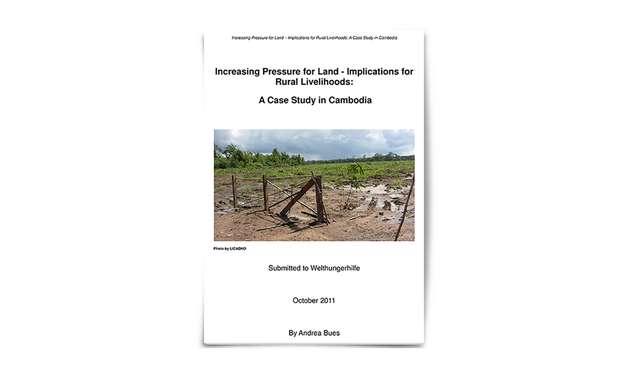
Case Study Cambodia

Welthungerhilfe has been working with indigenous people in the area since 2004, focusing on issues such as nutrition and water supply. Since 2010, the granting of economic land concessions (ELCs) in the areas in which Welthungerhilfe runs projects has led to the demarcation, and in some cases the clearing, of indigenous peoples’ farmland and forest. Land and forest are the most valuable resources of the otherwise resource-poor indigenous people in Ratanakiri. Despite this, the early impacts of ELCs on the livelihood of indigenous people as well as the general conditions under which these are granted remain to be assessed.
This study therefore aims to (1) analyse the early impacts of ELCs on indigenous people in the project area of Welthungerhilfe, (2) analyse the context and the procedure of how ELCs are granted in practice, and (3) evaluate possible entry points of intervention.






